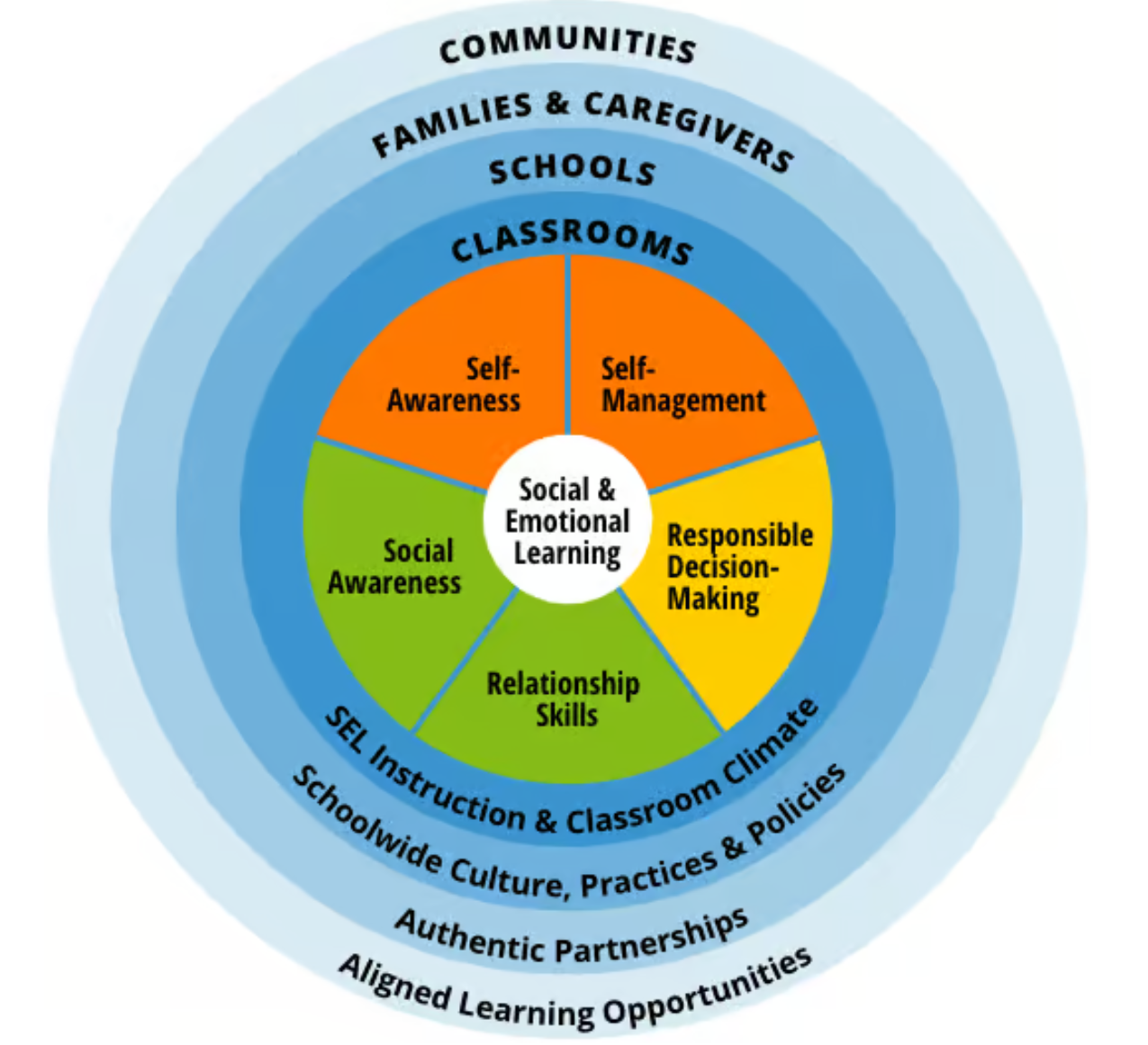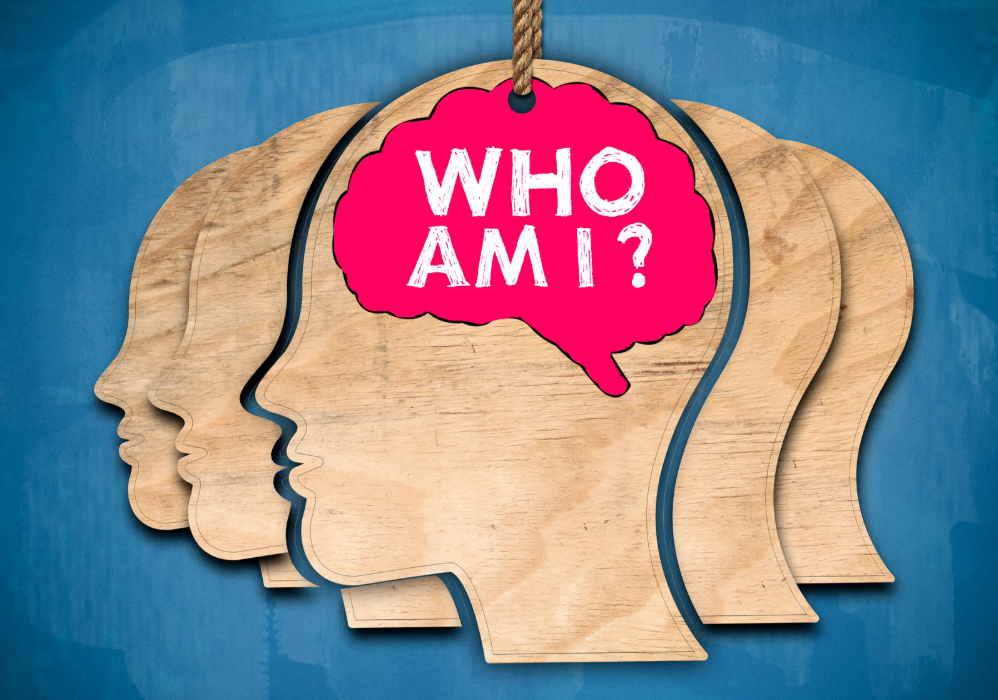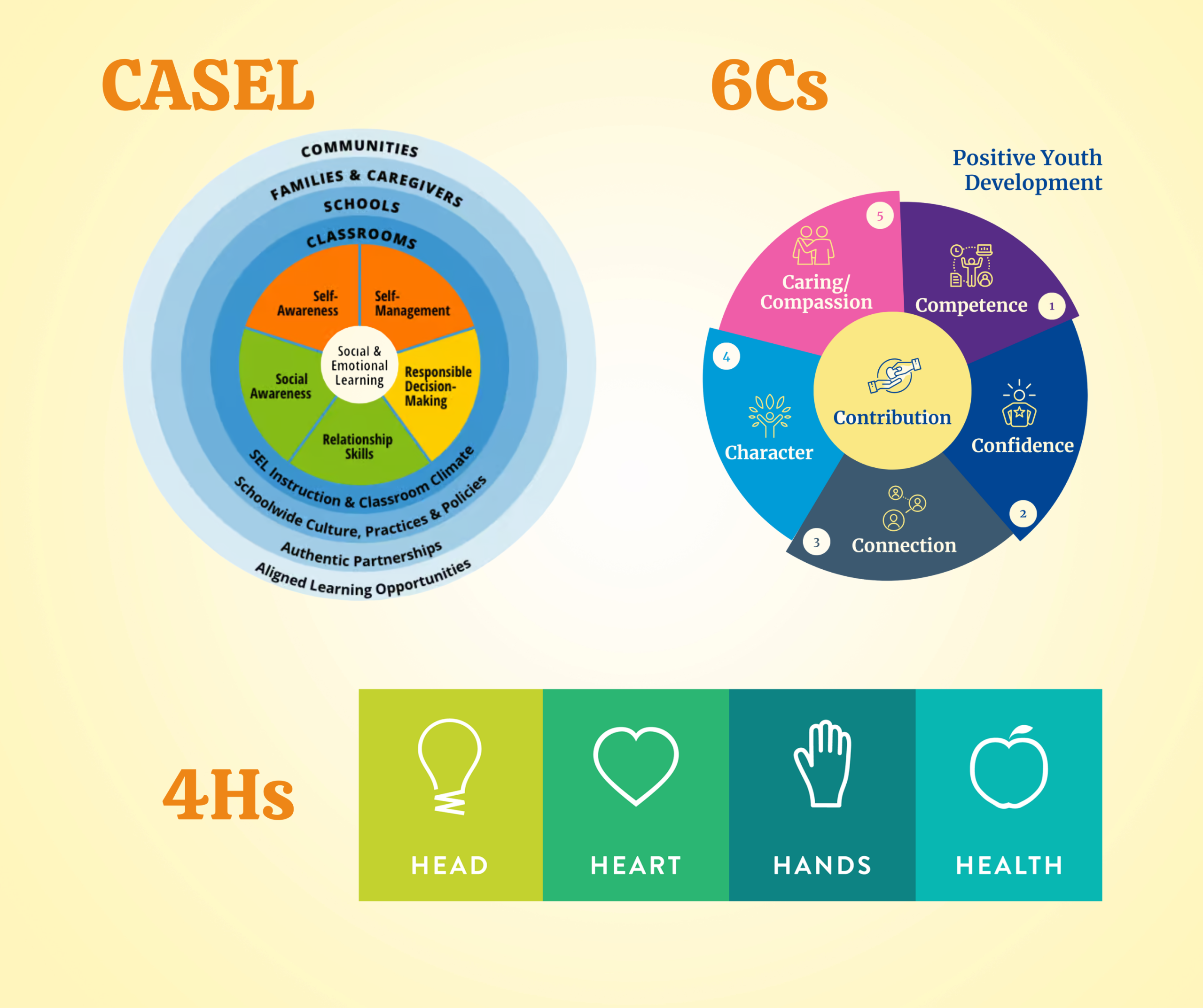In a rapidly changing world where students need more than just academic scores – they need resilience, emotional intelligence, and clear direction – educating and empowering young individuals from the inside out has become more critical than ever. This is why Mentors14 has chosen the CASEL framework – the globally recognized model for Social and Emotional Learning (SEL) – as the foundation for all of its personalized one-on-one mentoring programs.

CASEL (Collaborative for Academic, Social, and Emotional Learning) is an educational framework developed and researched by the leading SEL (Social and Emotional Learning) organization in the United States. The model consists of five core competencies and has been widely implemented in thousands of schools worldwide, from primary to university level.
The 5 main pillars of CASEL:
-
Self-awareness
-
Self-management
-
Social awareness
-
Relationship skills
-
Responsible decision-making
- Self-awareness

Self-awareness is the ability to honestly and clearly look inward: recognizing what emotions they are feeling, understanding personal strengths and weaknesses, and being aware of how and why they are reacting in certain ways. This competency forms the foundation of all personal development, helping students avoid being controlled by their emotions and build genuine self-confidence—not just a facade of strength.
A self-aware student can typically identify their feelings by saying, for example, “I feel anxious/discouraged/excited,” instead of just saying, “I don’t know what’s wrong.” They can also be aware that they learn better in the morning or need a quiet space to focus, and comfortably describe their strengths without feeling shy or boastful.
- Self-management

Self-management is the ability to regulate one’s emotions, thoughts, and behaviors to achieve goals – ranging from small tasks like completing homework on time to overcoming exam pressure, stress, or negative emotions. Today’s students often have the necessary skills but lack the ability to sustain positive behaviors consistently.
A student with strong self-management can create their own study schedule instead of waiting for reminders, practice deep breathing or take short breaks when feeling frustrated, and persistently pursue big goals such as scholarship exams or university applications abroad.
- Social awareness

Social awareness is the ability that enables students to empathize, understand others’ perspectives, recognize the diversity of emotions and circumstances, and respond appropriately to different situations. It forms the foundation for building strong connections with peers, teachers, and the broader community, as well as for effective teamwork.
When developed, this competency allows students to listen actively, apologize after disagreements, and refrain from judging classmates who may struggle academically or behave differently. Over time, they begin to understand that in many situations, “no one is completely right”—there are simply different points of view.
- Relationship skills

Relationship skills encompass the ability to communicate effectively, collaborate with others, resolve conflicts, and actively seek support when needed. In an open, collaborative learning environment, students cannot grow in isolation – they must learn to work together, build connections, and progress collectively.
A student with strong relationship skills will feel comfortable asking teachers questions when they don’t understand, know how to handle conflicts respectfully rather than avoiding them, and build healthy friendships based on trust rather than competition or grades.
- Responsible decision-making

This competency involves the ability to assess situations, weigh options, anticipate consequences, and make decisions aligned with one’s personal values. In an age where students face countless choices – selecting a field of study, choosing a university, choosing friends, choosing how to respond – responsible decision-making is key to helping them act with agency and resilience in life.
A student with this competence will have the courage to decline actions that conflict with their principles, even under peer pressure. They also choose their academic path based on their core values and genuine abilities rather than following trends. Most importantly, they learn to take responsibility for their own lives, beginning with even the smallest decisions.

Among many modern educational frameworks—such as the 6Cs (Competence, Confidence, Character, Connection, Caring, Contribution) and the 4Hs (Head, Heart, Hands, Health)—each offers distinct value. However, Mentors14 confidently chooses to implement CASEL for the long term because of these key advantages:
1. Student-Centered from the Inside Out
Unlike the 6Cs, which focus on global citizenship skills, or the 4Hs, which emphasize balance among intellect, emotion, practical skills, and health, CASEL begins from within the student. It helps learners:
-
Understand their own emotions and self-awareness before understanding others
-
Grow organically, rather than conform to an idealized model
2. Perfectly Aligned with 1:1 Mentoring
Mentoring is a deeply personalized journey – and no model aligns more effectively with that philosophy than CASEL, especially in terms of:
- Personalizing developmental pathways.
- Structuring inner transformation in a way that is both guided and flexible.
- Fostering long-term growth: students can apply the CASEL framework for years to come.
3. Science-Based – Practical – Long-Lasting Impact
CASEL has been implemented by thousands of schools, nonprofits, and educational organizations globally – from elementary through high school. It is a comprehensive, research-backed educational framework that has been proven to:
-
Improve academic performance.
-
Enhance mental well-being.
-
Reduce negative behaviors.
-
Strengthen social connections and increase overall happiness.
Mentors14 and the Journey of Growth through CASEL
At Mentors14, the CASEL framework is not taught as a dry theory. Instead, it is woven into every mentoring conversation, every self-awareness exercise, every gentle “How are you really feeling?” – and every honest reflection a student shares with themselves.
We don’t define success by whether a student gets into a prestigious university. We define it by whether they:
-
Understand themselves better than they did yesterday
-
Dare to speak up for what they believe in
-
Listen deeply and make choices aligned with their own values
CASEL is not just a framework. It is an educational philosophy that Mentors14 embraces – to help build a generation of students who:
-
Look inward with honesty
-
Actively shape their personal growth
-
Connect with others with empathy
-
Make choices worthy of who they truly are
Because students don’t need to be the best in the class. They need to be the ones who truly know who they are – and who they want to become.
📩 Book your 1:1 mentoring consultation with Mentors14 today.


 VIE
VIE